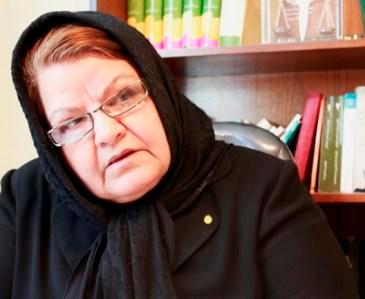Convicts Who Survive Executions Are Not Executed Again, Says Lawyer

Farideh Gheirat: “According to Sharia, if someone survives an execution, he will not be executed again, and as far as I know no one has been executed again.”
One day after sweeping news of the unsuccessful execution of a convict who was hanged on Wednesday, October 16 but who was discovered alive at the morgue when his family came to take his body for burial, the hospitalized convict’s fate remains ambiguous. A judge from the Administrative Justice Court has stated that “The issued ruling from the Revolutionary Court was a death sentence and the essence of the ruling is clear. In such cases, the death sentence will be carried out again after the convict’s health improves.”
However, in an interview with the International Campaign for Human Rights in Iran, lawyer Farideh Gheirats said that, “According to Sharia Law, if someone survives an execution, he will not be executed again, and as far as I know, no one has been executed again. We must not only take one judge’s opinion into consideration about this. Nothing definitive has been announced about this and we will have to wait.”
“Throughout history, it has happened many times that the noose tore, for example, or other things happened and the person who was about to be executed survived and was not executed again. We must now wait to see the Judiciary’s definitive decision about this case,” said Gheirats.
According to Mehr News Agency Alireza M. passed away after he struggled with the noose for 12 minutes and the resident physician confirmed his death. The “execution report” for his death was confirmed after that and his body was transferred to the Medical Examiner’s Morgue, so that his family could take possession of it the next day. The next day, before the body was delivered to the family, however, a morgue employee realized that steam had gathered inside Alireza M.’s plastic cover, and he was immediately transferred to a hospital. The drug trafficking convict is currently inside the Intensive Care Unit of Imam Ali Hospital in Bojnourd and his general health is reported as “satisfactory.”
The International Campaign for Human Rights in Iran and the Iran Human Rights Documentation Center issued a joint statement on October 8, noting that since Hassan Rouhani took office a few months ago, at least 125 executions have been carried out in the country, and dozens of other prisoners have been sentenced to death, or are on death row at this time.
Only hours after the news was announced, Mohammad Erfan a Judge with the Administrative Justice Court, stated that the convict would be executed again in keeping with the essence of the punishment ruled for the convict. “The Penal [Code] Operations Manual, approved in 2003, has provided explanations in this area, and the convict’s readiness for enforcing the sentence has been emphasized. About this individual, one of the issues is his having life, understanding, and awareness when the sentence is carried out, so for a convict who, for example, is in a coma, his sentence is not enforced. Rather, in such cases the convict is treated and healed and after a physician trusted by the Medical Examiner confirms his health, the sentence becomes enforceable,” Erfan added. (
Amnesty International published a statement on Wednesday, October 16, demanding that Iran halt this convict’s re-execution, calling his second execution “horrific.” “The horrific prospect of this man facing a second hanging, after having gone through the whole ordeal already once, merely underlines the cruelty and inhumanity of the death penalty,” said Philip Luther, Director of Amnesty International’s Middle East and North Africa Program.
According to Iran’s Anti-Drug Law, amended in 2010, keeping and transporting more than 30 grams of Crystal Methamphetamine will result in the death penalty.
Iran carries out more executions per capita annually than any other country in the world. So far in 2013, Iran has executed at least 402 individuals. It also carries out many of these executions in public, with 53 such public executions to date so far in 2013.






